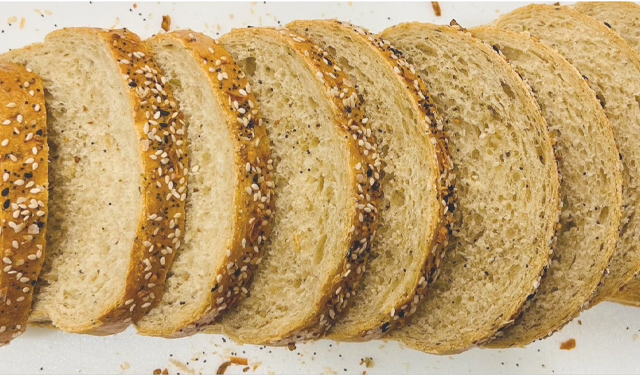Sea flour for baking – The use of algae in nutrition is an increasingly relevant and intriguing topic within the realms of nutrition and sustainability. Algae, aquatic organisms that thrive in water environments, are gaining popularity as sources of nutrient density and ecological resources to address global challenges such as climate change and food security.
Key points on the use of algae in nutrition
Nutritional Value – Algae are rich in essential nutrients such as proteins, fibers, vitamins (e.g., vitamin A, vitamin C, B-group vitamins), and minerals (like calcium, iron, and potassium). Particularly, they are among the few plant sources of vitamin B12, which is often primarily found in animal-derived foods.
Protein Content – Certain varieties of algae contain a significant amount of high-quality proteins. These proteins can be a valuable source for vegetarians and vegans, helping fulfill their protein requirements.
Sustainability – Algae cultivation requires fewer resources compared to traditional agricultural land cultivation. Algae grow rapidly and can be cultivated in aquatic environments, reducing the consumption of fresh water and deforestation.
Greenhouse Gas Emission Reduction – Algae can contribute to capturing atmospheric carbon during their growth. This can help decrease greenhouse gas emissions and mitigate climate change.
Diverse Uses – Algae can be integrated into various food products, including baked goods (as in the case of Sea & Flour), dietary supplements, fermented foods, soups, salads, and dishes based on algae themselves. They are also used to produce thickeners and gelling agents like agar agar and alginate, which find applications in the food industry.
Health Benefits – Algae consumption is associated with several health benefits. For example, they contain antioxidants and bioactive compounds that can have positive effects on heart health, the immune system, and brain health.
Flavor Variation – Algae can offer an interesting flavor variation to dishes. Their unique texture, taste, and color can enrich culinary preparations, adding a distinctive touch to meals.
Sea & Flour
The incorporation of algae into nutrition is transforming the food landscape, providing more sustainable and nutrient-rich options for consumers. The company Sea & Flour has obtained a patent for an innovative process that integrates algae into commercial baking. This process allows for an increased protein content in baked products and reduced sodium compared to standard bread. The patent pertains to the cold washing, processing, and granulation phases of algae to make them suitable for use in bread and related products. This approach successfully incorporates algae into baking, preserving both exceptional flavor and nutritional benefits from the sea.
The Sea & Flour product range includes various types of bread, focaccias, sandwiches, and pizza doughs. These products are labeled as “carb-positive” and “carbon-negative,” meaning they not only contribute to addressing climate change but also support regenerative coastal agriculture and the blue economy. Additionally, they enhance the nutritional value of bread, a widely consumed food in the United States.
Penelope Wasserman, co-founder and president of Sea & Flour, emphasized that the company identified the growing demand among American consumers to integrate algae into their diets. Therefore, Sea & Flour developed this approach to simplify the incorporation of algae into everyday foods, as bread is one of the most consumed foods. The acquisition of the patent represents recognition of the uniqueness and effectiveness of their approach, developed and perfected over several years.
Arlin Wasserman, co-founder and CEO of Sea & Flour, expressed enthusiasm for the increasing role algae will play in everyday food products, contributing to greater nutritional value and dietary sustainability. The company aims to collaborate with producers and retailers to offer products that cater to consumer preferences in terms of nutritional value and environmental sustainability.
Sea & Flour’s line of bakery products will be available in grocery stores in the latter half of the year. This announcement underscores the importance of sustainable innovations in the food industry, which not only meet consumer needs but also contribute to the health of the planet.
Sea flour for baking









